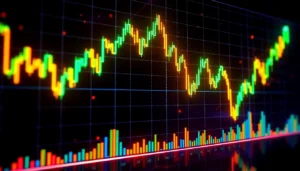Understanding the Importance of Trading News UK in Financial Markets
In the fast-paced world of financial trading, staying ahead of market movements is crucial for investors and traders alike. One of the most powerful tools utilized to inform trading strategies is real-time trading news, particularly those focused on the UK markets. The significance of Trading News UK cannot be overstated, as news events can dramatically influence asset prices, volatility, and overall market sentiment. This article explores how UK trading news drives market dynamics, the reliable sources for updates, and effective methods for integrating news analysis into your trading approach for smarter, more informed investment decisions.
Role of Trading News UK in Market Movements
Market Reactivity and Volatility
Trading news in the UK significantly impacts market movements because it provides timely insights into economic and political developments. For example, announcements related to Brexit negotiations or changes in UK monetary policy often cause sharp swings in currency valuations, stocks, and bonds. Such news releases act as catalysts, prompting immediate revaluation of assets as traders interpret and react to new information.
Market Sentiment and Behavioral Trends
Beyond immediate reactions, sustained news narratives shape investor sentiment, influencing longer-term trends. Positive economic data, such as rising GDP figures or employment rates, can boost market confidence, leading to bullish momentum. Conversely, negative headline risks, like political instability or economic slowdown, can trigger sell-offs. Recognizing how news drives collective trader behavior helps in anticipating potential market shifts.
Key Economic Indicators and Their Impact
UK-specific indicators like the Consumer Price Index (CPI), Bank of England rate decisions, and retail sales figures serve as critical signals. A surprise increase in inflation may lead to proposals for interest rate hikes, affecting borrowing costs and investment strategies. Understanding the timing and implications of these indicators is vital for capitalizing on market moves driven by economic data.
How News Cycles Influence Trading Strategies
News cycles often create predictable patterns of volatility — traders who monitor these cycles can align their strategies accordingly. For example, pre-release periods tend to be characterized by anticipation and low volatility, while immediate post-news hours experience heightened uncertainty. Developing a keen sense of these patterns allows traders to optimize entry and exit points, minimizing risk and maximizing opportunities.
Sources and Tools for Reliable Trading News UK Updates
Top Financial News Agencies Covering UK Markets
Relying on reputable news agencies ensures access to accurate and timely information. Firms such as Reuters, Bloomberg, and the Financial Times provide comprehensive coverage of UK economic developments, political updates, and global market linkages. These sources utilize advanced journalism standards and often offer exclusive insights that can be pivotal in high-stakes trading decisions.
Utilizing Real-Time News Alerts and Platforms
In the digital age, real-time alerts from platforms like Investing.com, TradingView, or specialized financial news aggregators enable traders to react instantly. Setting up customized alerts for key economic releases or geopolitical events ensures no critical news is missed, allowing for swift adaptation of trading positions based on emerging information.
Analyzing Data and Reports for Trading Insights
Data analysis extends beyond news headlines; comprehensive reports, economic forecasts, and technical analysis complement news data. Tools such as economic calendars provide timelines for upcoming releases, while analytical software helps interpret the data’s potential market impact. Combining qualitative news with quantitative reports creates a robust foundation for making informed trading decisions.
Integrating Trading News UK into Your Investment Approach
Building a News-Driven Trading Plan
A systematic approach begins with defining clear objectives and establishing rules for trading around news events. Identify which types of news are relevant to your assets, set criteria for market entry or exit, and incorporate stop-loss levels to manage volatile scenarios. Building this into a formal trading plan ensures consistency and reduces emotional decision-making.
Timing Market Entry and Exit Based on News Events
Strategic timing is essential—some traders prefer to enter immediately after a news release, betting on short-term volatility, while others wait for initial reactions to settle before making decisions. Using pre-market preparation combined with real-time monitoring helps identify optimal moments to act, whether buying the dip or taking profits post-movement.
Mitigating Risks through News Analysis and Monitoring
News-driven trading can be risky due to sudden shifts and false signals. To mitigate risks, traders should rely on multiple sources for confirmation, consider the credibility of sources, and diversify their trades. Employing protective stop-loss orders and position sizing techniques further safeguard against adverse movements stemming from unexpected news surprises.
Best Practices for Interpreting Trading News UK Effectively
Identifying Reliable vs. Fake News Sources
The proliferation of misinformation underscores the importance of source validation. Trust established agencies and cross-reference significant news with multiple reputable outlets. Avoid reacting to unverified rumors or social media chatter that can lead to impulsive and poorly informed trades.
Balancing Technical and Fundamental Analysis
While news provides fundamental insights, integrating technical analysis allows traders to refine entries and exits. Confirmations from chart patterns, trend lines, and momentum oscillators increase confidence in decisions driven by news events. This dual approach enhances positional accuracy and reduces reliance on speculative reactions.
Developing Critical Thinking Skills for Better Decision Making
Critical thinking involves questioning the context and potential bias behind a news story, understanding its actual impact, and assessing market expectations. By cultivating analytical skills, traders can differentiate between transient headlines and meaningful signals, leading to more disciplined and successful trading strategies.
Measuring Success and Staying Updated with Trading News UK
Tracking Performance of News-Based Trading Strategies
Performance metrics such as win rate, risk-reward ratio, and drawdown levels help evaluate the effectiveness of news-driven strategies. Regular review of trading logs and adjusting parameters based on outcomes ensures continuous improvement and adaptation to evolving market conditions.
Continuously Educating and Adapting to Market Changes
Financial markets are inherently dynamic—traders must keep abreast of new developments, techniques, and regulatory changes. Participating in webinars, reading industry reports, and following expert analyses foster ongoing education, enabling traders to refine strategies and stay competitive.
Networking with Financial Analysts and Traders
Engaging with a community of professionals provides diverse perspectives and valuable insights. Forums, social media groups, and trading meetups facilitate knowledge exchange, helping traders to decode complex news events and develop nuanced approaches to UK market trading.





















